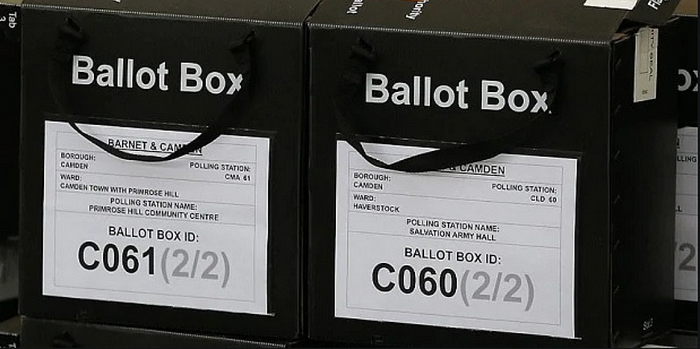Watch out for the ballot boxes.

Double Express, as well as The Spaniard at his Radio Talk, continued the controversy surrounding the midterm elections — for mayors and councilors — throughout the country.
They were sort of in-between major elections for senate, parliament, state governors, and president: a deemed useful thermometer to dig the federal sphere big shot’s popularity level.
What couldn’t be that clear was the premise embedded in the foundations of those plentiful complaints. For many, many decades — since 1996 — the ballot boxes have been electronic, without the slightest possibility of satisfactorily auditing them.
This hustle could be the core of a stir among one-third of voters who were already disgusted by the lato sensu Politics, not to mention the mastodontic lack of hope for an honorable solution to problems sometimes caused by these same political struggles. The so-called non-vote (blanks, null, voids and absentees) reached alarming levels of 40% in the city of São Paulo and 43% near there, in the coastline city of Santos.
In the case of the São Paulo state coastline main city, abstention reached a staggering 32%, a figure very close to one-third of the electorate. This was a very unambiguous sign that many things in terms of political representativeness have gone completely wrong. The Venezuelan method also uses the electronic ballot box, but it produces a printout inserted into an envelope which is dropped into a physical ballot box just to carry through a comparative count between those two different means.
Nevertheless, hell had come on Earth thanks for the US electoral system at the time of the presidential election in that country. Confusing election systems allow the defeated side to always announce some kind of fraud in the process: it is worthy of all encouragements the embrace of good practices to never challenge the people’s sovereign decision. However, times seem to be different these days: no one will fainly yield to the humiliation of a trouncing in political fields with the same nobility found among those beaten in football matches.
Both Swiss Kiss and The Spaniard tried to get as much of their influence in social media as possible to draw the attention of a large number of supporters to the possible electoral fraud through the use of electronic ballot boxes without the smallest possibility of auditing. The scenario grew appalling due to the pertinent involvement of electoral authorities in keeping the system with strong clues to severe manipulation, but all that stifled by an official discourse that the electronic vote collectors were reliable and safe.
Perhaps this explained the dismay of one-third of the electorate and non-votes around the range of 40%, 43%… 45%.
When issues of representativeness — representativeness that never reflects the true face of an entire population — come up with fierce and fury, perhaps some street riots here & there — which are generally fought by the police with disproportionate force — might be a wee more comprehensible.
A voter’s life in the Global South ain’t easy. There have been several bribery attempts during the campaigns: an approach which only finds room thank to the eternal penury smearing over more than half of the population. The everlasting economic crises end up working as a kind of appropriate subtract so that all the regional oligarchies well operate above the law.
What Double Express tried to warn that week was the horrendous fragility of the vote collector system. The main and highest Election Court authority — also a Supreme Court minister — went so far when he announced that the hiring of an American supercomputing company for the election counting on the previous weekend had been within the public bid rules: a plain lie.
One of the problems faced in the Global South is precisely the discrepancy between what could be called good republican practices and how people perceive them as something definitely worthwhile: the so-called authorities are likely to see themselves as gods. No one, de facto, endures such brashness for so long.
It would be like a country to have a certain enormous potential for proper civil life and its leadership runs down any kind of beneficial progress for the people. It was crystal clear the electronic ballot boxes had a counting system whose data was processed by a supercomputer owning a database… out of the country!
A kind of internal altercation among voters — especially fostered by those who claimed the return of paper ballots for better reckoning over the recount system — was based on the aberration of election data being available to authorities and intelligence services from foreign countries, like The Organism for instance.
The ravings sounded absurdly infamous: election authorities themselves handed over the country’s sovereignty on a silver tray, clearly revealing their complete lack of commitment to any domestic security provision. Much of that ruling class, in fact, has never had a more slightly patriotic feeling: once their own bank accounts were full enough, everything in that country was for sale or available to any major alien exploitation.
Swiss Kiss did nothing but spend hours and hours on his debate web show to prove to his viewers that the electronic ballot box system was an open door for only the chosen to occupy available public positions: there was no other way the popular will for better representation could have a voice in that desert.
The dream of creating a local deep state was growing stronger and stronger. This time, the military forces would not let it slip through their fingers so easily: manipulating the elections was an excellent way to legitimize everything an old-school-coup-d’état would make very, very ugly.
Democracy has yet to be inaugurated.
